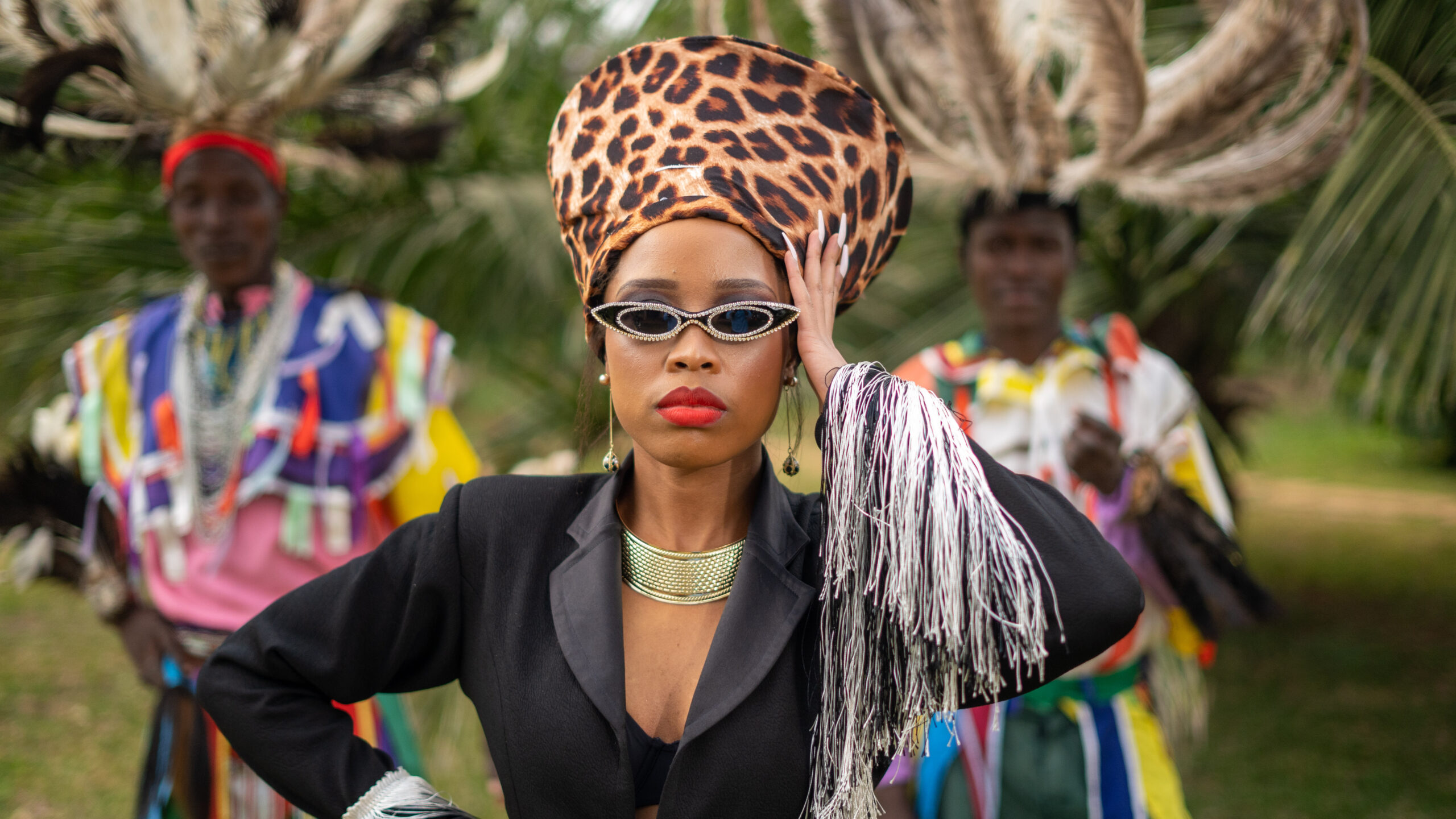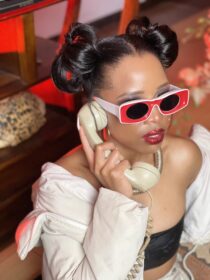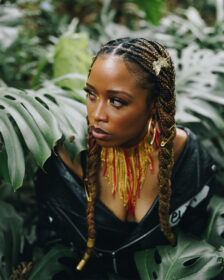‘Your passion is given to you as a gift’

The infectious energy and passion of Rosalie Oduor, M.S. ’24, is palpable, even through Zoom. On a recent call, with her guitar nearby, Odour told ClarkNow about the last decade of her life, in which she’s been focused on building a career in the music industry. The unifying threads of Oduor’s songs — and her career — are connection and confidence.
The native of Nairobi, Kenya, is a well-known singer in her home country, with over 40,000 followers on Instagram and 9,000 subscribers to her YouTube channel, where her videos have earned more than 200,000 views. She recently signed with Platoon Africa, a subsidiary of Apple Music, to extend her reach in the entertainment industry.
 Oduor has lived globally since graduating with her bachelor’s in marketing from Kenya’s Strathmore University. She earned a master’s degree in innovation and entrepreneurship from the University of Manchester, England, and she is now studying for her master’s in marketing analytics at Clark’s School of Management.
Oduor has lived globally since graduating with her bachelor’s in marketing from Kenya’s Strathmore University. She earned a master’s degree in innovation and entrepreneurship from the University of Manchester, England, and she is now studying for her master’s in marketing analytics at Clark’s School of Management.
She began making music a decade ago at age 18, eventually performing with major African artists, which led to her signing with her first record label, 42 Records.
“I was just singing covers, honestly,” Oduor says of her start in the industry. “I had this video recorder, and I would make videos of myself singing. That’s when YouTube had just started out. I began performing almost by accident.”
A music festival representative spotted one of Odour’s videos and invited her to perform the national anthem at an upcoming concert. The moment was extra special because the festival featured Burna Boy, a popular Nigerian singer, songwriter, and music producer.
“Being a musician means I have a purpose on earth.”
“When I got on the stage to sing the national anthem, a music label representative was there. When I got off that stage, I was immediately signed,” she recalls.
Oduor describes her music as Afropop — high tempo and danceable, but also filled with meaningful themes. “I try to always have a lesson. If you listen to my songs, they’re mostly about love. I just love love.
“It’s all made me realize that being a musician means I have a purpose on earth, which is to spread love and positive feelings to people,” she continues. “I look at my music as a vessel for me to make life easier for other people, so that if you listen to my song, maybe you’ll feel like ‘I’m going through the same thing,’ or that I understand what you’re going through.”

Oduor cites Sia, Usher, Beyonce, Dolly Parton, and Morgan Wallen as her musical influences. She also pulls much of her inspiration from her culture, the instruments she plays, and the languages she speaks.
“In my country, there are 42 tribes. I come from the fourth largest tribe, the Luo community,” she says. “For a lot of my music I sing in Dholuo, the language of my tribe. That’s because I realized for our tribe back home, there’s not much hope. A lot of people don’t have hope.” She describes a bleak political landscape in which intense tribalism has led to marginalization of her community and very little political representation nationally. Oduor began singing in Dholuo so that people from her community can realize the power they have within them already and give them a voice.
“It’s my duty, spiritually, to be your friend, to talk to you,” she says. “I like to share in your emotions, to share in your thoughts.”

Oduor speaks five languages, and plays “two and a half instruments,” including the guitar, African drums, and some keyboard. In addition to Swahili and Dholuo, she speaks English and Mandarin, and knows sign language. She enjoys experimenting with multiple languages in her music.
“The first song on my last album I sang in Mandarin,” she says, “I try to do that a lot because I feel that music is so powerful, even when you don’t understand it. If I could learn any other language and sing in it, I would.”
Oduor dreams of one day working with Sony Music or Universal Music Group, but for now is steadfast in managing her own career. “You have to basically manage yourself, even if you have a music label,” she says. “I’ve learned how to do a lot in the music industry on my own. I’ve designed my own costumes. I’ve choreographed my own shows. I write my own music. It would be interesting to see how other creatives do it.”
Preparing a show is typically a two-month process, she says. “I do nothing but choreograph, design outfits, and meet my dancers. Once I do that show, I’ll have another two or three months of just songwriting.”
All of this is balanced with her academics. Oduor is studying marketing analytics to learn how to effectively reach a wider audience not only as a performer but as a brand influencer. Living in Worcester, she notes, has also exposed her to a variety of musical influences that are informing her own music.
Attending Clark was an easy choice, she insists. Everything she read about Clark touted the University’s academic strengths for international students and accessibility to scholarships. “It was constantly Clark,” she says. “That was it.”
Oduor’s advice for other Clark musicians? Hold onto your passion, and use it.
“I have to sometimes tell myself to take the time to write and to listen to music,” she says. “Your passion is given to you as a gift, and you need to remind yourself that there’s a reason you have it.”


